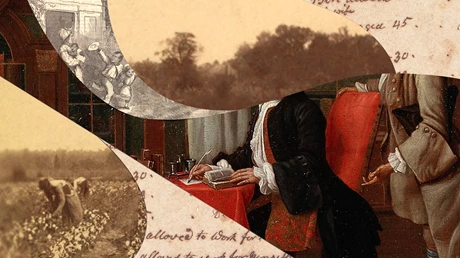Two businessmen’s unusual conversion in 1700s South Carolina led them to liberate the people they put in bondage.
At first glance, William Turpin and his business partner, Thomas Wadsworth, appeared to be like most other prestigious and powerful white men in late 18th-century South Carolina. They were successful Charleston merchants, had business interests across the state, got involved in state politics, and enslaved numerous human beings. Nothing about them seemed out of the ordinary.
But, quietly, these two men changed their minds about slavery. They became committed abolitionists and worked to free dozens of enslaved people across South Carolina. When most wealthy, white Carolinians were increasingly committed to slavery and defending it as a Christian institution, Turpin and Wadsworth were compelled by their convictions to break the shackles they had placed on dozens of men and women.
In an era when the Bible was edited so that enslaved people wouldn’t get the idea that God cared about their freedom, Turpin left a secret record of emancipation in a copy of the Scriptures, which is now in the South Carolina State Museum.
Perhaps it’s not surprising that this story of faith and freedom is mostly unknown. The two men were, after all, working not to attract attention.
Neither had deep roots in Charleston or close familial ties to its storied white “planter” dynasties. Turpin’s family was originally from Rhode Island, and Wadsworth was a native of Massachusetts who moved to South Carolina only shortly after the American Revolution. Both had public careers and served in the South Carolina Legislature, but their political profiles were not particularly high. Neither of them appeared to give any of their legislative colleagues the sense that they were developing strong, countercultural opinions on one of the most …
News brought to you by Christianity Today




